Confirmed speakers for the 2024 members' meeting include:
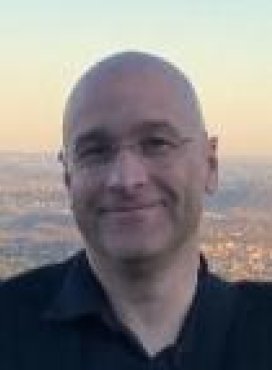
Aldo Bernasconi
Aldo Bernasconi is the VP of Data Science for the Global Organization for EPA and DHA Omega-3s (GOED). His responsibilities include coordinating the collection, analysis, and dissemination of information relevant to omega-3 markets, the development of GOED’s Clinical Study Database, and scientific research on the role of omega-3 fatty acids in health. He holds a PhD in mathematics from the University of Utah.
- Market Forum Demand - Tuesday 16 April 2024
Update on the Omega-3 Market
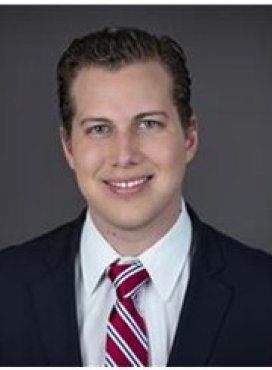
Andrick Payen
Andrick Payen is a Vice President grains and oilseeds analyst in Rabobank’s RaboResearch Food and Agribusiness group. Over the last seven years Andrick has covered different regions in North America as well as different industries. More recently, Andrick has covered grain and oilseeds with focus on the U.S., Canada, and Mexico. His expertise expands along the supply chain to different sectors from rural to wholesale markets and international markets. Since joining Rabobank, Andrick has supported RaboResearch efforts in developing proprietary research and analytical tools that have translated into yearly publications of grains and oilseed ten-year outlooks for the US and Canada. Andrick graduated with a Master of Science in Agricultural and Applied Economics from the University of Missouri-Columbia. During his time at the University of Missouri, he worked as a research associate at the Food and Agricultural Policy Research Institute (FAPRI). His focus was on policy and sugar trade between NAFTA countries, leading to presentations at top academic conferences. Prior to his work at FAPRI and the University of Missouri, Andrick was a risk analyst developing risk models for major banks in Mexico.
- Market Forum Supply - Wednesday 17 April 2024
Agri-commodities: a Global Panorama
In 2024, Agri commodities continue to feel the pressure from abundant supplies around the globe. Global competition accelerates as Brazil and Russia dominate the export markets. Weather continues to be an unknown and has become more than just a challenge for production now, limiting volumes through important water routes that are adding to the cost of transportation. In addition, Ukraine-Russia, and the Middle East have yet to find a middle ground that will continue to weigh on commodities. While vegetable oil availability may be limited due to demand from the biofuel sector and opposite is true for soybean meal, as crushing capacity ramps up in the North American market.
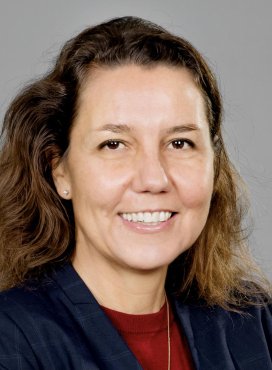
Anne Mette Bæk
Anne Mette is the Executive Director of European Fishmeal and Fish oil Producers (EFFOP), the international association of European fishmeal and fish oil producers. She is also the Executive Director of Marine Ingredients Denmark representing the Danish fishmeal and fish oil industry. Anne Mette has a demonstrated history of working in the food and fishery industry. In her past, Anne Mette has been in the Danish foreign service and has solid experience with public management, political communications, and international relations. Anne Mette is board member of several European market and fishing organisations. She was member of the IFFO Board of Directors from 2014-2021, IFFO President for the period 2020-2021 and Vice President 2018-2019.
- Market Forum Supply - Wednesday 17 April 2024
Update on Europe
Anna Mette’s presentation will touch upon the recent European production and the regulatory and political environment in Europe, as well as expectations to supply in 2024.
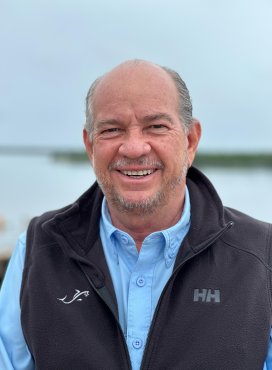
Armando Coppel Azcona
Maz Industrial is a Mexican company, which owns a sardine fleet of 18 vessels, and is dedicated to the fishing, production and commercialization of sardine and tuna fishmeal, oil, soluble and hydrolyzed, as well as frozen and canned sardine. It has a strategical location in the Mexican Pacific since it has two facilities: one in Mazatlan, Sinaloa and another in Guaymas, Sonora.
Maz Industrial is the main producer of fishmeal and has the most important and modern sardine fleet in Mexico; also, belongs to the most important fishing group in Mexico: Grupo Pinsa, which is one of the 250 most important Mexican companies and has 40 years in the fishmeal industry.
- Market Forum Supply - Wednesday 17 April 2024
Mexican Fishmeal & Fish Oil Production
Mexico is a State rich in marine biodiversity with more than 600 exploited species, in that sense, the fishery is an important economic activity in the country and have developed an important fleet that contributes with 1.89% of the world’s catches (14° place worldwide).
Currently, 94 active vessels are active within the small pelagic fishery, which occupies the 1st place in fishing production in the country, due to its catch volumes (+/-900,000 tons/year). The main species caught are Pacific Sardine, Pacific Thread Herring, Californian Anchovy, Pacific Anchovy, and Shortjaw Leatherjack, managed through quotas by region, species, and limited permits by boat. The landings of these species are used in the production of high-quality fishmeal and fish oil, rich in protein and omega-3 oils. Additionally, tuna fishmeal is produced of trimmings. Over 75% of the fishmeal and fish oil production is exported to other States, such as China, USA, Canada, Norway, France, Chile, and Germany.
Dr Brett Glencross
Dr Brett Glencross is the Technical Director of IFFO (The Marine Ingredients Organisation) having commenced this role in June 2021. Prior to this role he was the Professor of Nutrition at the Institute of Aquaculture at the University of Stirling in Scotland. Over the past 25 years he has worked in various academic, institutional, and industrial roles across Australasia, the Middle East and Europe. Throughout his career he has worked closely with many aquaculture production (farming) and feed companies throughout each of these regions. His research achievements have delivered many industrial outcomes resulting in the development of new processes, products, and applications. For his achievements in this regard, Brett has received multiple awards and commendations from both Government and Industrial organisations. At an academic level, he was one of the former editors of the journal Aquaculture Nutrition from 2008 to 2016. He is also the current Chair of the International Scientific Committee of the International Symposium for Fish Nutrition and Feeding (ISFNF). He has also been a Director of the Asia-Pacific Chapter of the World Aquaculture Society (2013 - 2016), as well as undertaking leadership roles at the CSIRO in Australia and the Institute of Aquaculture. Brett has Honours and Masters Degrees in Biochemistry from the University of Western Australia and a PhD in Animal Nutrition from the University of Queensland.
- Challenges and Opportunities - Tuesday 16 April 2024
Update on Technical and Regulatory work and recap on what we learnt from Cape Town
In this introduction to the Challenges & Opportunities Session, Dr Glencross will summarise the current situation with regards to many of the regulations governing the use of antioxidants and revisions to limits on contaminants and how these will impact the industry. In addition to this summary on regulatory activities, he will also provide an overview of progress against the various IFFO projects being undertaken for members, including the microplastics and carbon-footprint work. He will also briefly touch on some of the other initiatives being undertaken, including how we are continuing to drive thought leadership in the sector and delivering on some InFocus Reviews on key topics. To end the introduction Dr Glencross will introduce the themes and speakers for this year’s Challenges & Opportunities Session.
Panel & QA
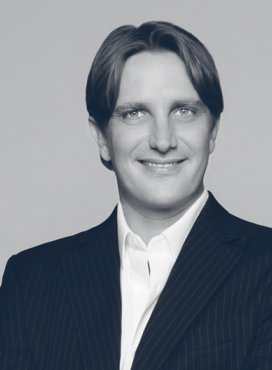
Damien Claire
Damien Claire is the Group’s Chief Sales and Marketing Officer. Prior to joining Atlantic Sapphire, Mr. Claire was the President of Platina Seafood, Inc. Mr. Claire’s experience includes positions in several industries around the world. From 2009 to 2014, he served as Sales/Analyst for South Pacific Specialties in Miami. From 2004 to 2008 he also acted as Vice President of Business Development for Global Outsourcing in Chile. Damien earned a Bachelor’s Degree in Computer Science and Business Administration from Lander University in South Carolina.
- Market Forum Demand - Tuesday 16 April 2024
Overview on salmon farming
The presentation will give an overview of the salmon market with a focus on the supply side. The conventional net pen salmon farming industry has grown rapidly over the last five decades, however, in the last decade, the growth measured in annual production volumes has slowed down, primarily due to biological challenges across all the main producing regions. That being said, new technology such as offshore salmon farming and land-based salmon farming offer potential for future growth of sustainable salmon to fill the ever-growing gap between supply and the strong demand side. Finally, the presentation will introduce Atlantic Sapphire as a pioneer in land-based salmon farming with the world’s largest facility of its kind located in Miami, Florida.
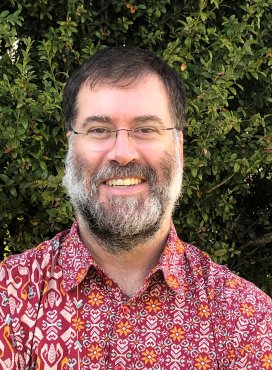
Dave Martin
Dave Martin is Program Director at Sustainable Fisheries Partnership, where he leads SFP’s work on marine ingredients and engagement in multispecies fisheries, guides SFP's efforts to protect human rights and promote ethical treatment of workers in seafood, and is a member of the aquaculture team. Dave has been involved in conservation efforts for more than 25 years, focusing on working with communities in Siberia, the Russian Far East, Oregon, and throughout the Pacific Rim to promote sustainability, civil society, habitat conservation and restoration, and wilderness and natural resource protection. He has also worked in the private sector as corporate director of sustainability for a large American seafood company. Dave has MAs in both international policy studies and Russian translation from the Monterey Institute of International Studies and a BA in political science and Russian studies from the University of Iowa.
- Challenges and Opportunities - Tuesday 16 April 2024
How to improve the carbon footprint and biodiversity impact of aquafeeds
Farmed seafood can have a lower carbon footprint than other animal proteins, and its continued growth is helping to meet a growing demand for seafood and feed a growing planet. However, aquaculture’s use of compound feed remains a climate change and environmental impact hotspot. Impacts such as land conversion and deforestation, overexploitation, pollution, and bycatch take place where feed ingredients are produced or captured. Addressing the climate change and environmental impacts of aquaculture feed ingredients, along with continued improvements in aquaculture planning and management, can ensure farmed seafood is a low-carbon source of protein – and one that protects and restores nature. Active industry engagement can help drive improvements and meet company and customer ESG commitments. SFP will soon be launching a toolkit aimed at helping companies support improvements and measure risk and impact.
Panel & QA
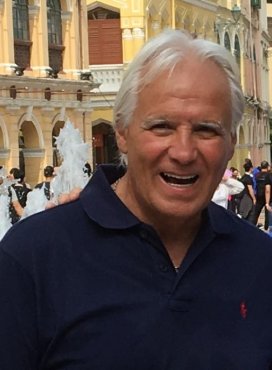
Eduardo Goycoolea
Eduardo is one of the founders of IFFO when former IFOMA an FEO were merged, being copresident during its first year. He has then been a Board member almost all the time, including Vicepresidency in 2016-2017 and then President for the 2018-2019 period. Eduardo was the Sales & Marketing Director for the Chilean fishing companies El Golfo, and then Blumar, for more than 20 years until 2015. He has also been a Board member of several other local and international organizations around the world, including being the Executive Director of New World Currents, a five chilean salmon producing companies joint venture to sell in China, and Director and vice President of Exapesca, a Chilean fishoil producers joint venture that sold their products together. He also represented GSI, the Global Salmon Initiative, in the ASC Steering Committee that developed the new ASC Feed Standard. Currently he is vice president of IFFO and also seats in the Governing Body of MarinTrust.
- Market Forum Supply - Wednesday 17 April 2024
Chile: a new fishing law on the horizon?
Eduardo’s presentation will include a review of the fishing law, the fishing regions, the fisheries status including quotas, catches and biomasses, as well as a short review of salmon harvests and fishmeal and fishoil production from salmon offals. We will then cover industry challenges to end with some comments on the country´s political climate.
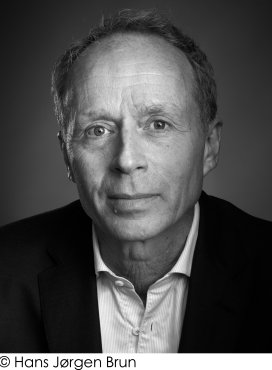
Egil Magne Haugstad
Master in Agriculture and Finance. COO/CEO of Coop´s in Norway with responsibility of agricultural machinery and flowers. CEO of Egersund Fisk from 2001, later continued in a merger as CEO in Pelagia until today.
- Market Forum Demand - Tuesday 16 April 2024
President’s Welcome
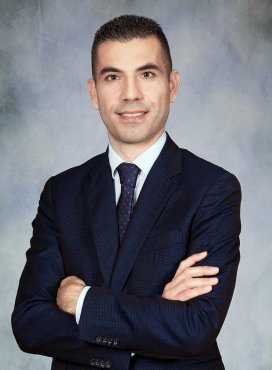
Enrico Bachis
Enrico Bachis joined IFFO in 2009 as Business and Information Manager and was then promoted to Market Research Director in 2017. He is responsible for the market intelligence produced by IFFO also representing the industry within the working group on agri-commodities of OECD-FAO. Enrico graduated from Cagliari University in Sardinia with a Political Science degree before obtaining an MSc in Financial Economics and a PhD in Industrial Economics from the University of Nottingham (UK).
- Market Forum Supply - Wednesday 17 April 2024
Fishmeal and fish oil supply: an overview of the global trends
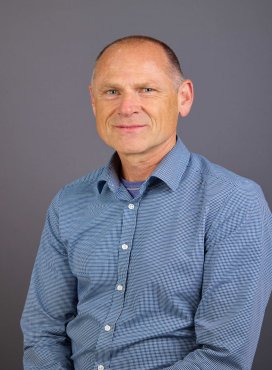
Gertjan de Koning
Gertjan held various positions in DSM before joining the Strategy and Acquisitions unit. In this role, he identified omega-3 as an opportunity for DSM to expand its presence in nutritional ingredients. He was in charge of the acquisitions of both Martek (algal oil) and Ocean Nutrition (fish oil), after which he became DSM’s first Vice President Nutritional Lipids. He was one of the initiators of Veramaris, before he moved on to other positions, including full responsibility of DSM’s portfolio of feed vitamins. Late 2022, Gertjan returned to the omega-3 space by stepping into the role of CEO of Veramaris. Over the last year, he guided this company from startup to being an established EPA/DHA algal oil supplier to the aquafeed, petfood and human nutrition industries.
- Market Forum Supply - Wednesday 17 April 2024
Algal oil: friend or foe?
Fish oil is a great and unique source of omega-3 EPA and DHA. The demand for these essential fatty acids continues to increase, primarily driven by aquaculture, and can no longer be met by the finite supply of fish oil. Additional sources of EPA and DHA are emerging, but a detailed supply/demand analysis suggests that these will not scale fast enough to close the supply gap within the next five years. One such addition is algal oil by Veramaris, which has found its way as regular ingredient in aquafeed, petfood, and direct human consumption. An overview will be provided on possibilities and limitations of algal oil as alternative for fish oil, and on how demand creation initiatives for algal oil equally support fish oil. Not surprisingly, the vast majority of applications of algal oil are in a blend with fish oil.
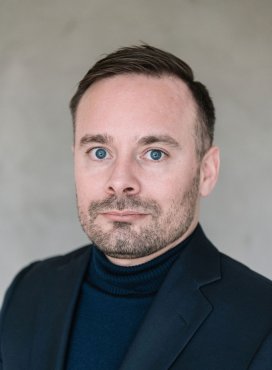
Hanus Samró
Hanus Samró is the co-founder and co-owner of the digital platforms, Aquafacts.com and Fishfacts.com, which offers comprehensive data and business intelligence about the global fisheries and aquaculture industries.
The platforms are developed for decision makers, stakeholders, investors, service providers and key actors within the industries.
Hanus Samró is 35 years old, has a master in political science, and lives in the Faroe Islands.
- Challenges and Opportunities - Tuesday 16 April 2024
Carbon Footprinting Fishing - From Best Practice To Big Data Analysis
Fishfacts is tracking close to 10,000 fishing vessels via both terrestrial antennas and satellite AIS.
The company generates millions of data points per day about the global fishing industry.
By using big data, algorithms, and machine learning, it is possible to calculate the vessels' carbon footprint per kilo of fish.
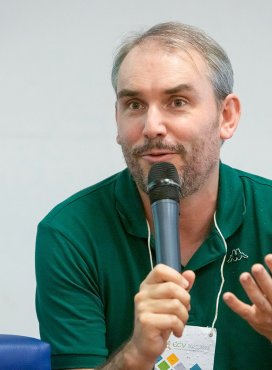
Dr. Ian Vázquez-Rowe
Dr. Ian Vázquez-Rowe graduated in Biology in 2006 at the University of Texas at Arlington. He then continued his graduate studies in Environmental Engineering at the University of Santiago de Compostela. In October 2008 he initiated his research career at USC, where he obtained his PhD in Chemical Engineering in July 2012. Currently, Dr. Vázquez-Rowe is a Full Professor at the Department of Engineering at the Pontificia Universidad Católica del Perú. He has participated in numerous research projects at an international, European, Spanish, Galician, Luxembourgish, and Peruvian level, as well as recent projects with UN Environment. Dr. Vázquez-Rowe has published 140 articles (h-index= 41 on Scopus) in international journals.
- Challenges and Opportunities - Tuesday 16 April 2024
What impacts the footprint of fishing?
Fishing activities are the only major source of wild caught animal protein in the food sector, although important amounts of landed fish are derived as marine ingredients also. Despite the increasing importance of marine resources and ocean conservation in food systems, environmental impacts linked to the ocean are currently not well reflected in environmental assessment methodologies, like Life Cycle Assessment (LCA). The current presentation delves into these shortcomings and current efforts to tackle them through the inclusion of ocean-related environmental indicators.
Panel & QA
Jeff Regnart
Jeff began his fisheries career with the State of Alaska’s Fisheries Management Agency. His range of experience includes managing the world’s largest wild capture salmon fishery in Bristol Bay to managing rationalized (quota) crab and groundfish fisheries statewide in both state and federal waters.
From 2011 to 2015, Jeff served as Director of the Commercial Fishery Division. The division manages all commercial, subsistence, and personal use fisheries within the jurisdiction of the State of Alaska and many in the Exclusive Economic Zone. In addition, this role involved state, federal, and international fishery policy, quota, and treaty work. Since 2015 Jeff has managed the Responsible Fishery Management certification program (RFM). The RFM program is a voluntary and internationally accredited third-party certification program for wild-capture fisheries and includes two standards, one for fisheries and one for chain of custody.
- Challenges and Opportunities - Tuesday 16 April 2024
The role of certification in fisheries
Jeff Regnart will present on the role of certification in fisheries. He will share his perspective on what proper certification is and is not.
Certification is not marine research nor is it fisheries advice; certification includes verification that research and fisheries advice is based on generally accepted methodology.
Certification and ecolabelling is not fisheries management; fisheries management remains the task of the competent authorities.
Certification entails, i.e., third party verification of government fisheries management performance which facilitates market access for seafood. Do authorities meet the commitments that they themselves have made in international fora?
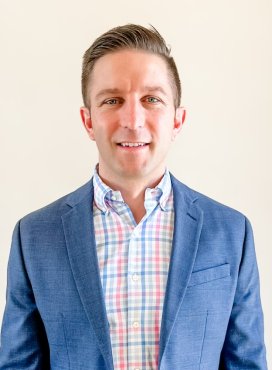
John Rodysill
John Rodysill a Trade Unit Manager of Marine Ingredients for the Scoular Company. Graduated from the University of Nebraska and have worked for Scoular for the past 12 years. I previously worked in the grain commodities space and traded corn, wheat, and soybeans across the US for feed, export, and pet food demand. I currently oversee our sales in the US of fish meal and fish oil into feed, pet food, and aquaculture markets. Specializing in warehousing, quality assurance, and logistics, we provide a full service program for customers in North America looking for Marine ingredients.
- Market Forum Demand - Tuesday 16 April 2024
An update on North America consumption
I will be discussing the changing landscape that is demand for fishmeal and fishoil in North America. The last five to ten years has been a story of consistent growth in pet food up until 2023 when many premium ingredients were cut and consumer demand shifted from buying the top shelf more expensive products to a more generic product at a discount to the premium brands. With pricing internationally dropping over the last 3-6 months we are seeing a recovery in the demand for generic fishmeals and salmon meal into petfood. A return to normal buying habits for feed customers as well. Aquaculture feed demand has seen a similar recovery with recent pricing drops and I will discuss how we expect that trend to continue through 2024.
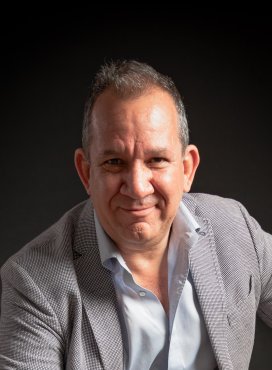
Jorge Garcia Herz
Omega-3, Marine Sustainability & Circularity Advocate
Currently, as the CEO of MAREX Global Sourcing, he brings over 27 years of expertise in fish oil trade, operations, and supply chain management, leading the company with a vision for innovation and sustainable growth.
Others:
- BSc in Industrial Engineering, Universidad de Lima.
- Masters: Management (Tulane University), International Business (CENTRUM Católica), Sustainability & Circular Economy (EALDE School of Business).
- Published works on Omega-3 sustainability and the marine ingredients industry.
- Market Forum Demand - Tuesday 16 April 2024
Update on fish oil trade
Explore last year's global fish oil scene and the real challenges it faced, from supply restrictions to market shifts. We'll break down the trade's complex global network, showing how different regions and qualities affect the market.
Learn why being eco-friendly isn't just good for the planet—it actually changes pricing. We’ll also introduce how recycling within the industry is making big waves.
We’ll also cover predictions for 2024-2025, hinting at a smoother sail for Peru's fishery and a trend towards “normality”.
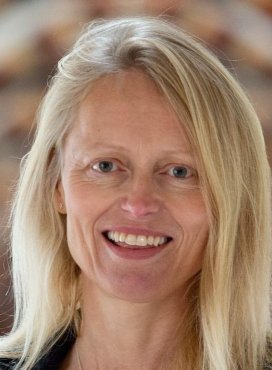
Libby Woodhatch
Libby Woodhatch has had a varied career in the seafood supply chain and standards development spanning over 20 years. Prior to taking on the role of Executive Chair of MarinTrust, she was Head of Advocacy at Seafish, where her remit included the development of the Responsible Fishing Scheme (RFS) standard and Seafish’s wider programme in seafood ethics. Libby was CEO of the industry body Seafood Scotland for ten years, where she helped improve the value of return to the Scottish seafood industry. During this time she also sat on the MSC’s Stakeholder Council. Libby has just completed a 9 year term as Vice Chair of the charity the Fishermen’s Mission, which provides welfare and support to fishermen and their families. Libby holds a BSc (Hons) in Fisheries Science from the University of Plymouth and an MSc in Fisheries Development & Planning from the University of Hull.
- Market Forum Demand - Tuesday 16 April 2024
Moving Marine Ingredients Forward Through Continuous Improvement
From May 1st, 2024, all new MarinTrust Standard audits will be conducted under version 3 (V3). The new approach focuses on increasing accessibility for responsibly sourced and produced marine ingredients, encouraging the use of by-products, progressing the Standard's focus on environmental and social impacts, both at the factory and on the vessels, and laying the foundation towards fully traceable marine ingredients through standardisation of data.
This session will explore the main changes, how certificate holders and other relevant stakeholders drove them, and how they will benefit the marine ingredient industry and value chain.
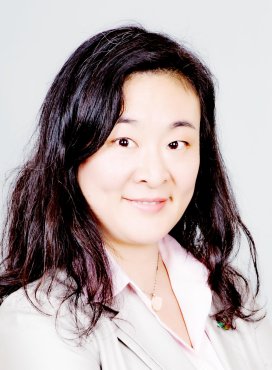
Maggie Xu
Maggie Xu joined IFFO in October 2011 as the China Manager and was promoted in October 2013 to China Director. She was previously a Trade Commissioner responsible for fish, seafood, meat and processed food and beverage products at the Embassy of Canada to the P. R. China for ten years. Maggie has a B.A. degree in English language and completed a summer school jointly given by London School of Economics and Peking University on international finance.
- Market Forum Demand - Tuesday 16 April 2024
China Market Update
Thanks to recovered fishery resources and imported Russian sardine, China’s domestic fishmeal production improved last year. On the other hand, fishery by-product holds potential for further growth given the fast expansion of ready-to-cook meals. Although efficient collection of by-products is still a big challenge, the future trend to utilize more fishery by-products is clear. In terms of fishmeal consumption, both aqua and pig farmers suffered loss and fishmeal demand was restrained throughout last year until now. Faced with survival challenges, feed producers had to give up formula benefits and focus on cost reduction. Last year, the strong global market encouraged domestic fish oil production and the situation is expected to remain unchanged this year, especially with normalization on import of sardine that offers very high oil yield. Last but not least, the strong price and requirement by feed producers to control cost decide fish oil demand by aquafeed sector stays sluggish while needs for fish oil by human consumption remains powerful.
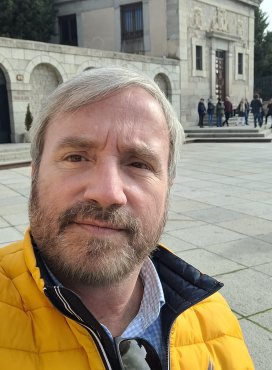
Mariano Sergio Gutierrez Torero
Fishing Engineer, Doctorate in marine sciences, since 2018 Scientific Director of the Humboldt Institute of Marine and Aquaculture Research, university professor of acoustics and fisheries in universities of Peru and Chile, co-Chair of the Habitat Monitoring Working Group at the South Pacific Regional Fisheries Management Organization. General Director of Fisheries Research and Director of Detection Technologies at the Peruvian Sea Research Institute (IMARPE, 1991-2007), Director of Fisheries Surveys at Tecnológica de Alimentos S.A. (TASA, 2007-2011), Senior Project Officer and National Coordinator at the United Nations Development Program (UNDP, 2011-2017) for the GEF Humboldt Current Large Marine Ecosystem Project. More than 100 papers in scientific journals as author and co-author.
- Market Forum Supply - Wednesday 17 April 2024
Update on supply, Peru
An El Niño event began in February 2023 but is now weakening. It had two phases: a regional warming called "Coastal Niño" until September 2023, followed by a broader warming affecting both the central Pacific Ocean and South American coasts. This had global repercussions, notably in fisheries. The Peruvian anchovy fishery was heavily impacted, leading to no fishing in the first season due to the coastal El Niño's intensity and the young demographic of the population. The second season saw the granting of a fishing quota, but only 1.2 MT was caught due to frequent closures to protect juvenile fish. Current oceanographic conditions suggest normal fishing conditions for the 2024 season.
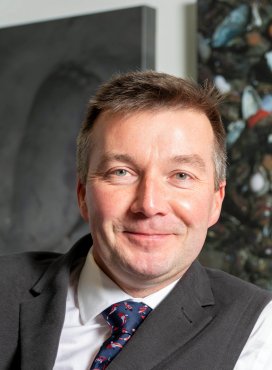
Prof. Michel Kaiser
Professor Michel J Kaiser BSc PhD DSc MAE FRSE
Michel Kaiser is Professor of Fisheries Conservation at the Lyell Centre, Heriot-Watt University and was the University’s Chief Scientist until 2022. Previously, he was the Science & Standards Director at the Marine Stewardship Council and was Professor of Marine Conservation at Bangor University for 20 years. He began his career as the research lead on the ecosystem effects of fishing for the Centre of Environment, Fisheries & Aquaculture Science in 1991. His research focuses on the sustainable use of marine resources and minimization of impacts on the marine environment. He collaborates with and advises global seafood industries, retailers, eNGOs and Government agencies. He is a trustee of Fishing Into The Future, and Scottish Fisheries Museum and is a member of the BBC Rural Affairs Committee.
- Challenges and Opportunities - Tuesday 16 April 2024
Sustainable fishing - Expectations, impacts and the future of social licence
Social license to operate is increasingly becoming an accepted norm, hence it is important to reflect on the well-known and emerging issues that are integrated into the definition of SLO. In general (but not in all cases) the industry is often reactive to problems that typically are highlighted by environmental non-Governmental Organisations (eNGOs). This ‘passive’ approach leaves the fishing industry un-prepared and on the backfoot. As SLO becomes increasingly important to enable businesses to continue to operate this will require a behaviour change for some in the fishing industry. Drawing on my time at the Marine Stewardship Council I will vision how the fishing industry can use technology to get well ahead of the game, anticipating ‘problems’ that have recently emerged such as the focus on carbon footprints. Technology and data transparency can be the tool that enables tomorrow’s industry to be equipped with the data needed to demonstrate its sustainability.
Panel Introductions and Discussion
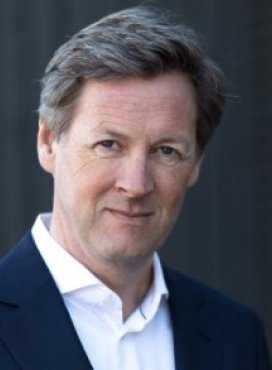
Petter M. Johannessen
Petter M. Johannessen has been heading IFFO The Marine Ingredients Organisation since 2018. He is passionate about seeing the contribution of marine ingredients to global food production recognised, while supporting continuous improvement and responsible practices. IFFO actively engages in and initiates collaborative efforts, considering them a cornerstone of its operations. Johannessen is notably recognised as a founding member of the Global Roundtable on Marine Ingredients, alongside the Sustainable Fisheries Partnership. Prior to his current role, Johannessen held industry executive positions including Global Business Director for Risk Management and Sourcing at Cargil Aqua Nutrition, as well as serving as Supply Chain Director and Global Sourcing and Purchasing Lead at EWOS Group.
- Market Forum Demand - Tuesday 16 April 2024
Opening Remarks


